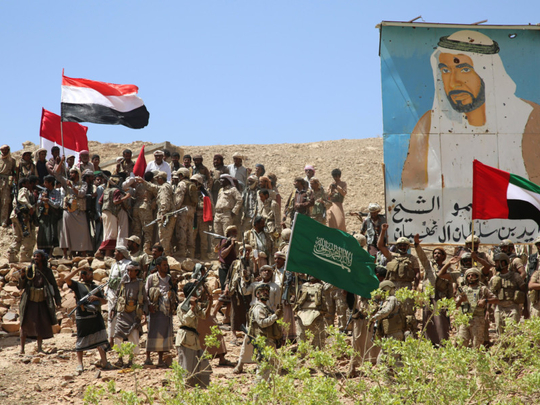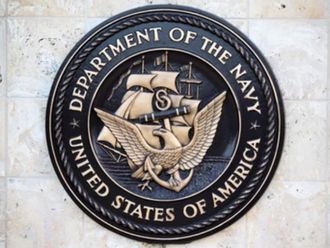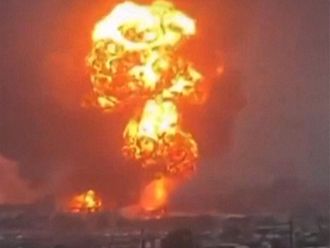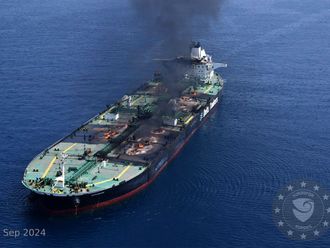
Abu Dhabi: The success of the Saudi-led coalition in Yemen vindicates the decision to answer the calls of the legitimate Yemeni government to save its people from the destruction wrought by the Houthis.
"Operation Decisive Storm" has derailed the Houthis’ foreign-backed effort to destabilise the region, Dr. Sultan Bin Ahmad Sultan Al Jaber, UAE Minister of State, and Chairman of the Board of the National Media Council, has stated.
In an article published by Asharq Al-Awsat newspaper, a premier pan-Arab daily, Al Jaber said: "When the Iranian-armed Houthi militia forced the internationally-recognised government of Yemen from power in an illegal coup, showing no respect for the political choices of the Yemeni people, a broad coalition of nations led by Saudi Arabia and supported by the United Arab Emirates had a moral obligation to act. We are closely bound to our brothers in Yemen by history, religion and language."
The following is the full text of Minister Sultan Al Jaber's article in Asharq Al-Awsat newspaper:
Our peoples have paid a heavy price with the lives of our martyred soldiers in this battle, which we are winning on three fronts.
Our inevitable victory will be dedicated to their sacrifice. Having liberated the critical southern port of Aden, we have retaken control of the northern province of Marib.
Yet it is the location of our most recent military success that underscores what is at stake in this campaign, beyond the right of Yemenis to self-determination.
In only 6 hours, coalition forces secured territory overlooking the Bab Al Mandab Straits -- a channel-barely sixteen miles wide at its narrowest point -- that links the Indian Ocean to the Red Sea and the Suez Canal.
Interconnected
The strategic, military, and economic importance of this thin strip of water cannot be overstated -- not only for Yemen but for the region and world beyond.
In the current conflict, Iran is has repeatedly tried to ship arms to Houthis via this sea lane, and in May the Iranian Navy sent two of its destroyers to the entrance of the straits.
Whoever exerts military control over Bab Al Mandab also has influence over one of the world’s most important trading routes. Almost 10 per cent of all global trade passes through this bottleneck, which is the principal maritime link between Europe and Asia.
In 2014, 12,000 ships carrying 600,000 tons of cargo navigated Bab Al Mandab.
Any instability around Bab Al Mandab also has a choking effect on Yemen’s economy -- which was already struggling before the current conflict -- and its potential for growth.
Threats to the security of shipping along Bab Al Mandab put an insurance premium on any cargo transported along it. Disruption or closure would force traffic south and around the southern tip of Africa -- a ten thousand mile detour.
The United Arab Emirates believes that the security and stability of the Arab world is interconnected. So by supporting the free will of the Yemeni people, we are taking a stand against the spread of chaos and terrorism throughout the entire region.
Before the Houthi militia plunged Yemen into a cruel and unnecessary war, Yemenis had embarked on a hopeful path under the unity government of President Abd Rabou Mansour Hadi toward a balanced power sharing arrangement comprising six regions.
After years of economic stagnation caused by instability, Yemen at last had a chance to begin to forge a brighter future.
The Houthis were the only group to reject that future.
With the political support of Iran, they preferred discord over development and have opened the door for the dark forces of terrorism and destruction in Daesh (the so-called ISIS) and Al Qaeda to prosper.
Strong resolve
The UAE leadership’s determination to achieve victory on the battlefield, surmounting all challenges, has galvanised the resolve of our soldiers.
Bound by an unyielding faith in the justice of their cause, our soldiers are committed to defending the legitimate Yemeni government. They will not rest until they have defeated this imminent threat to the Yemeni people and ensured its security, without which our common welfare is at risk.
As an unwavering partner in the international Saudi-led coalition to restore the lawful Yemeni government to power, the UAE is committed to helping replace chaos with stability.
Those who have been able to visit the liberated regions in Yemen have felt, first hand, the people’s relief from suffering and oppression.
Now that Aden has been returned to the authority of the legitimate government, essential humanitarian supplies are starting to flow back via the port and airport. Before the liberation of Aden, hospitals, dependent on fuel for generators, could barely function.
Now some 2.6 megawatts of generating capacity have been added to the electricity grid, supplying light and power where there was misery and darkness across the city. Prior to the return of the Hadi government, no school was open in Aden.
Today, over fifty have been rebuilt or restored so that children are no longer deprived of their education and can regain some normalcy in their lives.
The UAE is determined to play its part to return Yemen to its people so that they can decide their own future without foreign interference and resume a path toward peace, progress and security from which we all, near neighbors and countries far away, will benefit.












